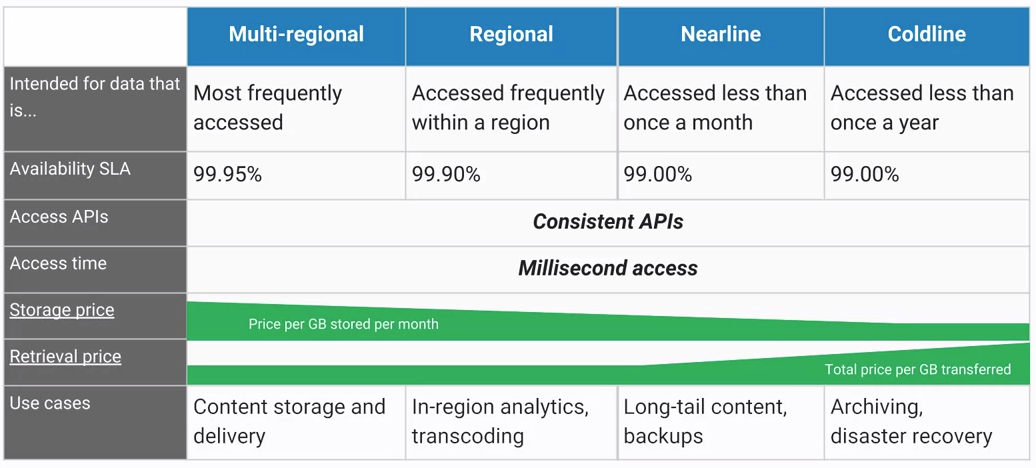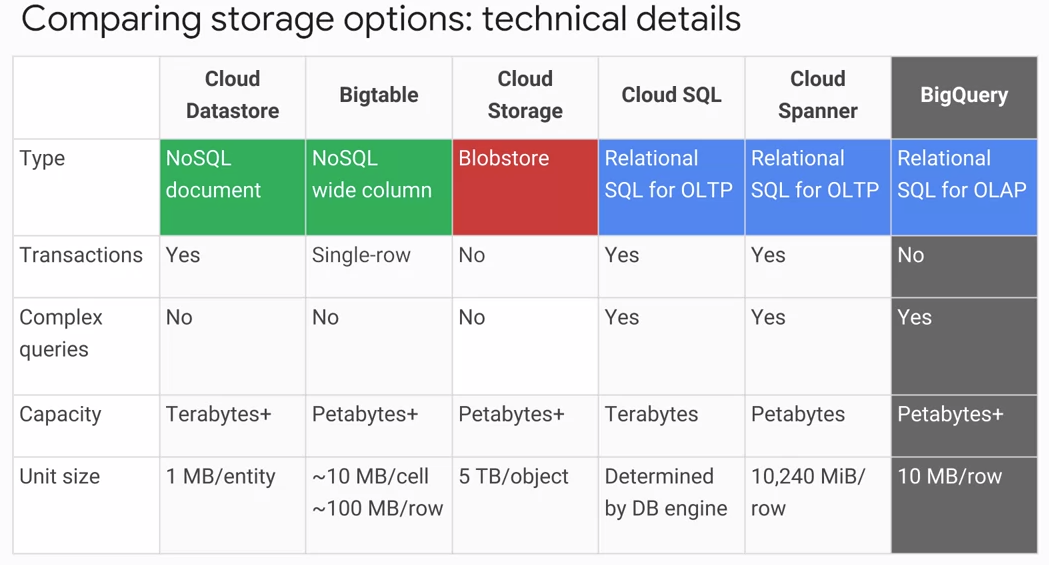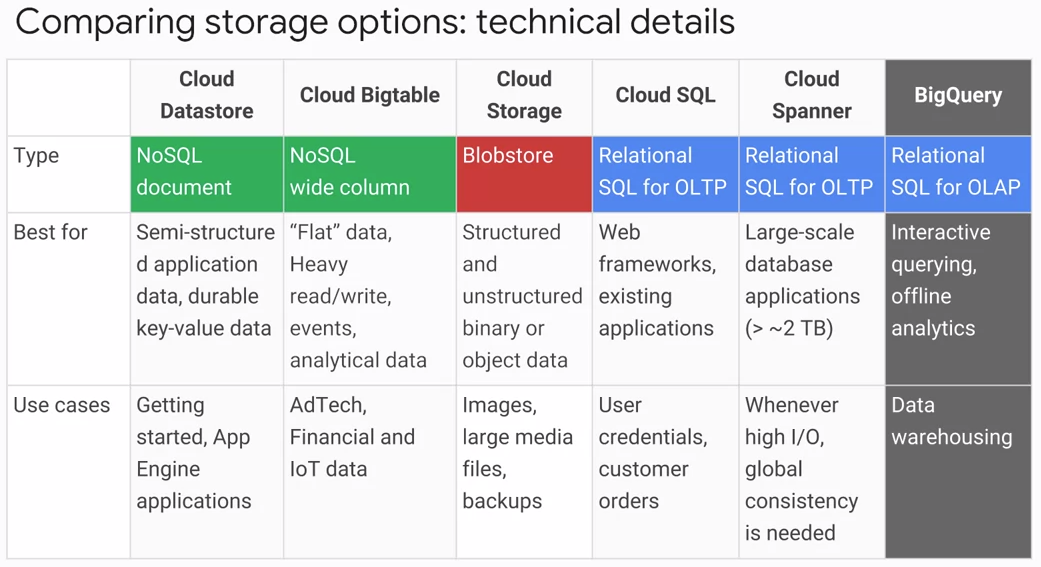Cloud Storage
It is binary large-object storage(you have a storage and have a unique key to access) which is not the same as
file storage(you manage your data as a hierarchy of folders) or
block storage(the operating system manage data as chunks of disk)
Cloud storage works well with web technologies and is scalable
Each of objects in Cloud Storage has a URL and is immutable
Usage:
- serving website content
- storing data for archival and disaster recovery
- distributing large data objects to your end users via Direct Download
For most case, IAM is sufficient, but if you need finer control, you can create ACLs(access control lists).
Each ACL consists of:
- scope: a user or group
- permission: read or write
Object Versioning
Cloud Storage keeps a history of modification, you can list the archived versions of an object, restore or delete it
It is not available on cloud console, you can change it via the command line
NB: after enabling of versioning, adding several versions of the object, when disable the versioning, the different versions
always exist in the bucket, you should delete them manually.
lifecycle
Cloud Storage offers lifecycle management policies, eg: you could delete objects older than 5 days
Cloud Storage has different types of storage classes: Multi-Regional, Regional, Nearline, Coldline

3 Ways to bring data into Cloud Storage:
- Online Transfer
- Storage Transfer Service (online)
- Transfer Appliance (offline)
Cloud Bigtable
It is google’s NoSQL, big data database service. It supports high throughput, both read and write.
It offers same API as HBase(native database for Apache Hadoop), differences:
- Bigtable can scale and manage fast and easily
- Bigtable encrypts data in-flight and at rest
- Bigtable can be controlled access with IAM
- Bigtable drives major applications such as Google Analytics, Gmail
Bigtable access patterns:
- application api
- streaming
- batch processing
Cloud SQL
managed RDBMS
- MySQL and PostgreSQL databases
- Automatic replication
- Managed backups
- Vertical scaling(read and write)
- Horizontal scaling(read)
- Google security
Cloud Spanner
horizontally scalable RDBMS
- Strong global consistency
- High availability
- SQL queries
- Automatic replication
Cloud Datastore
horizontally scalable NoSQL DB
- Designed for application backend
- Supports transactions
- includes a free daily quota
Cloud Storage Comparing

